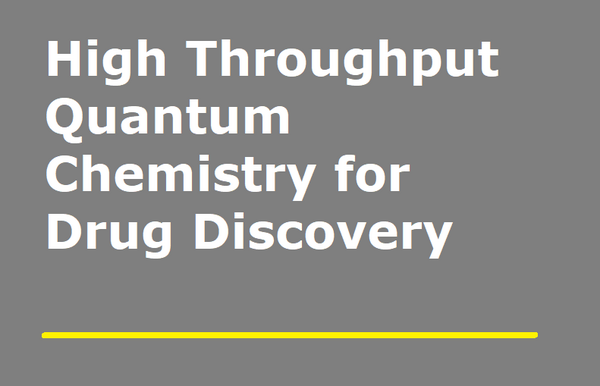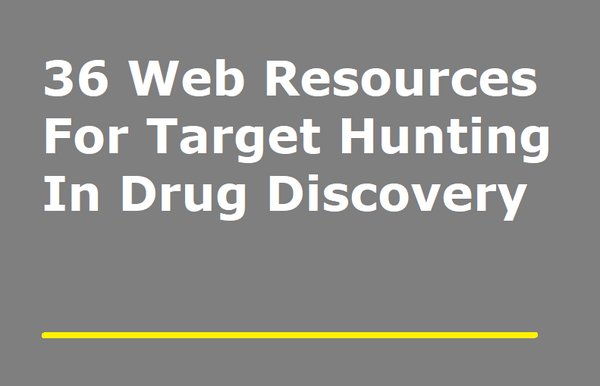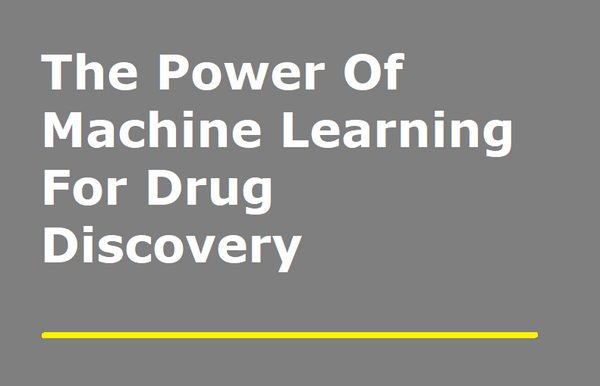12 Useful Mobile Apps For Life Scientists
(Updated: 2.09.2024)
Nowadays mobile devices are ubiquitous with an estimated number of smartphones and tablet PCs to exceed two billion globally.
The availability of internet connection in most public places, powerful processors, and user-friendly touch screen technologies make mobile devices useful not only for spare time activities but also for education and science.
Specialized mobile apps are ubiquitous in the area of healthcare providing value for medical doctors, as well as patients involved in various healthcare programs and therapies. Those include various apps for assisting clinical decision making by doctors, apps for monitoring physiological parameters of patients in real time, apps for managing doctor-patient interactions, apps for self-monitoring various health conditions and physiological parameters (for example, did you know you can identify a dangerous wart on your body using your mobile phone?) etc.

However, decent mobile apps for assisting life science researchers in their lab routine are rather scarce so far. Below I have summarized a list of 7 mobile resources which will be useful for life science professionals:
1. ACS Mobile
American Chemical Society mobile application for reading peer-reviewed content from ACS. Essentially, a mobile reader for accessing, reading and sharing thousands of research publications. Support powerful search functionality by keywords, author names, and other parameters.
Compatible with Android.
2. Approved Drugs
The Approved Drugs app summarizes over a thousand chemical structures and names of small molecule drugs approved by the US Food & Drug Administration (FDA). The app layout allows for a suitable browsing the structures and names, filtering by structural features, and ranking by similarity to a user-drawn fragment of a molecule. The detailed view allows exploring a 3D conformation as well as tautomers of the small molecules in the list.
The structures from search results can be exported in a variety of ways - to email, twitter, clipboard etc.
The Approved Drugs app is compatible with iPhone, iPad, and iPod and requires iOS 11.2 or later.
3. Labster VR
This app opens doors into the future of scientific education - experimentation in a virtual reality laboratory. The Labster VR app for Android is featuring a number of different labs and experiment set-ups that can be manipulated in a usual touch screen mode or through virtual reality goggles.
Currently, there is only High-Performance Liquid Chromatography (HPLC) lab is presented in the app, where a student can analyze drug stability by comparing drugs that have been stored in different conditions. The theoretical principles and the equipment features of Liquid Chromatography are explained during the virtual experimentation.
4. Medicinal Chemistry Toolkit
The Medicinal Chemistry Toolkit is a free app with a set of useful resources to support the day to day work of a medicinal chemist. The app contains tools to calculate and graphically visualize a number of values, including Cheng-Prusoff; Dose to man; Gibbs free energy to binding constant; potency shift due to plasma protein binding; Log D vs pH curves; Ligand Lipophilic Efficiency; GClogP
The App also includes a compound quality calculator, a maximum absorbable dose calculator; attrition modeller, drug-drug interactions calculator and more.
What is particularly interesting about this app is that it is integrated with another product - The Handbook of Medicinal Chemistry by Andrew Davis & Simon E Ward. It is a comprehensive educational e-book covering modern aspects and tools of medicinal chemistry and drug discovery. A book is interactive and it is possible to jump into the Medicinal Chemistry Toolkit to see how a described concepts actually look like in a practical example. For instance, you can play with small molecule structure to see how it affects its predicted bioactivity.
The book is for purchase and is available on iPhone, iPad, iPod touch, and Mac.
5. NEB Tools App
Restriction enzymes are widely used in lab experiments for molecular cloning and DNA modification. NEB Tools app provides access to the most requested information about restriction enzymes helping plan experiments on the go.
Using this app you can find and email to your inbox restriction enzyme information selected by category, recognition sequence, or name. Also, you can determine buffer and reaction conditions for experiments with wto restriction enzymes, or calculate annealing temperature for PCR reaction etc.
The app is supported on iPhone®, iPad® or Android™ devices.
6. Prime: PubMed Journals & Tools
Prime is a free and powerful app which connects you to the up-to-date journal citations and abstracts from the complete PubMed database. Using this app you can search articles by keywords, author, or journal, then link to the publisher’s full texts.
The Prime app also allows to bookmark articles, tag important content and search results to be able to come back to them later, and share articles from the app via Email, Dropbox and social media channels. Some additional functions include being able to discover new articles in a feed designed based on a user behaviour, and being able to set alerts for specific journals of interest -- so that you get notified when new articles are published.
What is really interesting, the app has Grapherence® tool, which allows you to visualize the influence and interrelationships among journal articles in a user-friendly graphical representation.
7. PolyPharma
The PolyPharma provides powerful modeling and prediction tools with intuitive visualization layout for computer-aided drug design (CADD) practitioners.
The app contains hundreds of Bayesian models for disease targets and off-targets. All the calculations are done locally, internet connection is not required.
The app features powerful graphical module able to generate colour-coded heatmaps, and structure overlays for correlating structure regions with activity or inertness.
There is a honeycomb clustering feature for interactively exploring the structure-activity neighborhood, in the context of the molecules used to build the target molecules.
8. Reaxys Reaction Flow
This free app is a suitable way to spend time during travel or waiting in a queue refreshing memory on named chemical reactions and their mechanisms. This educational app is made like a set of flashcards containing hundreds of well-known as well as rarely used chemical reactions, so it can be used as a learning tool and a reference.
The app is available on iPhone, iPad, and iPod Touch, it requires iOS 8.0 or later.
9. Molarity Dilution Calculator
The Molarity Dilution Calculator, part of the ChemiX - Lab Calculator, Protocols, Tools app, is a powerful tool designed for chemistry and molecular biology applications, aiding in precise and efficient lab work. This calculator allows users to perform dilution calculations, determining the volume of stock solution needed to achieve desired molarities for specific buffers. It supports a wide range of calculations including molarity from mass and volume, interconversions, and solving for reagent mass, solution volume, and molar concentration based on given parameters.
Equipped with a built-in unit converter, it simplifies complex calculations across various unit formats, making it ideal for students, researchers, and professionals engaged in routine research. The app operates offline, providing accessibility to numerous protocols, tools, and detailed information on buffer preparation, molecular weights, and lab reagent guidelines, all without the need for an internet connection.
The app is available on Android.
10. MSD Manual Consumer
The MSD Manual Consumer App provides medical information on thousands of disorders, including symptoms, diagnoses, and treatments, all accessible offline. It requires permissions for storage to save content on the device. The installation is a two-step process: downloading the app template and then the full content, which may take several minutes.
The app includes content from over 350 medical experts, with photos, illustrations, animations, and quizzes. It operates without collecting personal data, ads, or subscriptions. It is intended for use outside the U.S., its territories, Puerto Rico, and Canada.
The MSD Manual Consumer App is available on Android and iOS platforms.
11. Medscape
Medscape provides immediate clinical answers for healthcare professionals with access to medical calculators, drug and disease information, clinical tools, and medical news. It features over 450 calculators by specialty, a Drug Interaction Checker, Pill Identifier, and procedural videos.
The app covers prescribing and safety details for 9,200+ drugs, herbals, and supplements. It updates on FDA approvals, clinical trials, and offers expert commentary in over 30 specialties. Users can earn CME/CE credits and track progress with an Activity Tracker. It also includes Medscape Consult for networking and MedscapeLIVE! for events.
12. Biotech Calculators
Biotech Calculators is a mobile app designed for eye care practitioners to perform precise IOL (Intraocular Lens) calculations for cataract and refractive correction surgeries. The app includes calculators for Eyecryl Phakic, Eyecryl Phakic Toric, Eyecryl Toric, Eyecryl ACTV Toric, Optiflex Trio, and Bioring models.
Users can input pre-operative data to determine the most suitable IOL or Bioring for their patients. The app functions smoothly online once downloaded and logged in, and it requires Android 5.0 or higher. Available since July 2022, it currently has over 500 downloads.
Topics: AI & Digital



